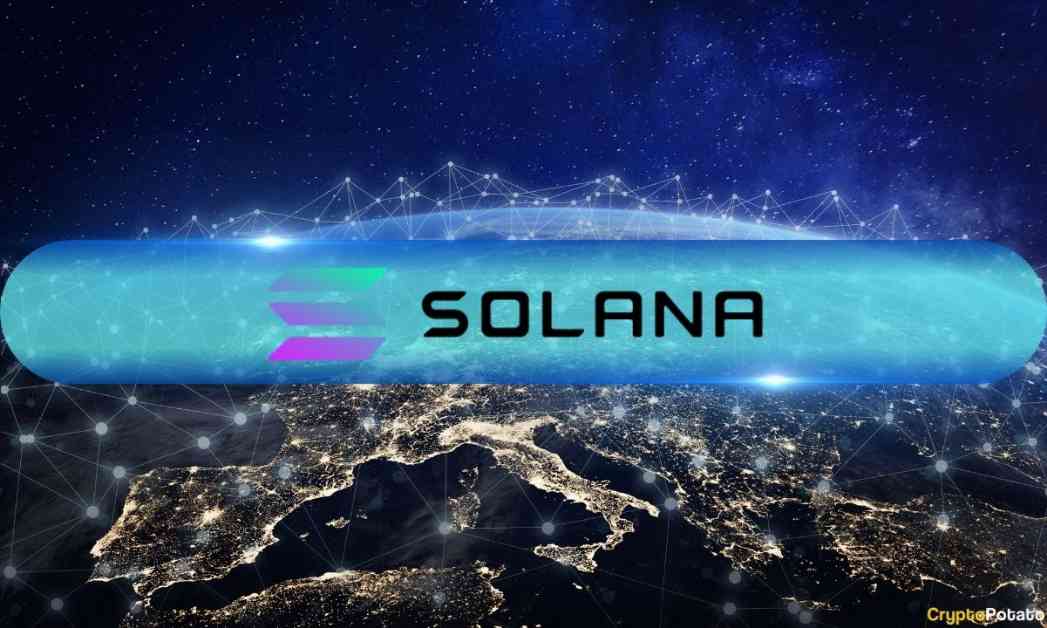The Solana Network: A Game-Changer in Liquid Staking
The Solana network has been making waves in the cryptocurrency space with its innovative approach to liquid staking. By introducing liquid staking on the blockchain, Solana has unlocked a new level of flexibility and liquidity for users, paving the way for mass adoption and growth in the ecosystem.
According to a recent report by Bybit, a leading cryptocurrency exchange, Solana’s liquid staking model, particularly the exchange-launched liquid-staked SOL, has the potential to mobilize masses and accelerate the onboarding of retail users in the Solana ecosystem. This development marks a significant breakthrough moment for Solana, as it positions itself as a frontrunner in the world of decentralized finance (DeFi).
The State of Liquid Staking on Solana
As a proof-of-stake network, staking plays a crucial role in ensuring the security and stability of the Solana ecosystem. While traditional staking involves users delegating their SOL to validators for network consensus and transaction validation, liquid staking offers a host of additional benefits.
Liquid staking provides users with the flexibility to trade their liquid staking tokens (LSTs) on various DeFi protocols while still maintaining exposure to their staked positions. This not only enhances liquidity but also opens up the potential for higher yields. Additionally, participants have the option to stake their SOL through a staking pool, which distributes their assets across a wider range of validators, thereby promoting decentralization and offering additional rewards.
Currently, Solana boasts a staking ratio of 68%, with $57 billion worth of SOL staked on the network. This surpasses Ethereum’s staking ratio of 28%. However, only 6.5% ($3.6 billion) of Solana’s total value is involved in liquid staking, compared to approximately one-third of Ethereum. Bybit sees this as an opportunity for growth in Solana’s liquid staking landscape.
By leveraging data from Ethereum’s liquid staking market, Bybit predicts that Solana’s liquid staking market could potentially increase fivefold, reaching up to $18 billion. This growth potential is contingent on Solana’s ability to increase its LST ratio to match that of Ethereum.
Room for Growth and Innovation
Bybit believes that exchange-launched liquid-staked Solana tokens could play a pivotal role in driving activity and adoption on the network. By serving as a bridge between retail investors and the broader Solana ecosystem, these tokens have the potential to create an environment conducive to the growth of liquid-staking solutions.
In a bid to catalyze this growth, Bybit has become the first exchange to launch its SOL liquid staking token, bbSOL. By offering this token, Bybit aims to facilitate easier access for retail investors to participate in liquid staking on Solana, thereby fostering a more inclusive and vibrant ecosystem.
The burgeoning interest in liquid staking on Solana is evident in the fact that half of the network’s top ten DeFi protocols by total value locked now offer liquid staking services. This trend signals a growing demand for LSTs within the Solana community, which is expected to fuel further expansion and innovation in the DeFi space.
“With the continuous expansion of Solana’s DeFi ecosystem, we anticipate a positive feedback loop where the demand for LSTs will drive increased developer activity, protocol adoption, and user engagement. This virtuous cycle is reminiscent of the early days of DeFi on Ethereum and bodes well for Solana’s future growth,” remarked Bybit.
As the cryptocurrency landscape continues to evolve, Solana’s liquid staking model stands out as a beacon of innovation and growth. By offering users greater flexibility, liquidity, and earning potential, Solana is poised to attract a new wave of participants and solidify its position as a leading player in the DeFi space.

